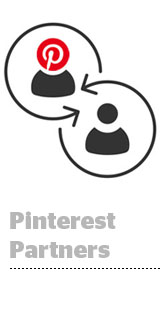
Pinterest really wants people to shop on its platform.
The newly public company revamped its marketing partner program on Monday and added a new partner category for third-party tech providers that facilitate shopping experiences.
But the rebrand of Pinterest’s Marketing Developer Partners program to a global Pinterest Partners program is more than a cosmetic change.
When the program first launched in 2015, Pinterest had only just introduced its first ad products. But businesses on Pinterest today need solutions that go beyond advertising, said Michael Akkerman, the global head of Pinterest’s partnerships program.
“People often talk about shopping and ad-supported mechanisms together, but shopping transcends advertising,” he said. “Commerce can be a paid shopping experience or it can be organic.”
Today, the program has categories for partners across advertising, content marketing, audiences, measurement, creative and, now, shopping.
“We’ve been evolving with an ear to the market, and at the same time, we also know that our pinners are looking for more opportunities to shop through Pinterest,” Akkerman said.
People do come to Pinterest with commercial intent, he said. They’re in the mood to buy, but they haven’t made up their mind yet, which is a potent opportunity for a brand to slide into their consideration set.
“We have 250 million people who visit Pinterest every month to discover products or services, and we want to make it easy for them to find the brands they’re looking for,” Akkerman said.
Shopping partners on Pinterest fall into four categories: ecommerce plugins, feed management providers, tag management for tracking online sales and companies that simplify the path to purchase for brand categories without their own point-of-sale, such as CPGs or consumer electronics.
The goal isn’t necessarily for people to actually complete transactions on Pinterest, but for Pinterest to remove as much friction as possible between when someone finds a cool product and is able to buy it.
Pinterest’s recent investments in a product catalog upload tool, shoppable pins and its continued focus on visual search are all examples of its ambition to be a driver of shopping behavior.
But Pinterest can’t go it alone.
WooCommerce, one of Pinterest’s new ecommerce enablement partners, is preparing its first integrated tool that allows brands to publish products to Pinterest directly from their WooCommerce storefront, said Paul Maiorana, head of partnerships at WooCommerce, and VP at its parent company Automattic, which also owns WordPress.
The tool will also enable image product pinning and pixel tracking to measure the performance of Pinterest ad campaigns, Maiorana said.
Pinterest also started testing a new reporting API on Monday to help businesses track their ad-related and organic performance on Pinterest.
“This API and the partner program are both about the same thing,” Akkerman said, “and that’s making Pinterest more accessible to businesses and to people who use our platform.”
This post was syndicated from Ad Exchanger.


More Stories
Fisher Funds named sponsor for New Zealand Legacy Award
Everyone must go Tourism NZ campaign is no 100% Pure… But this might just work
Waka Kotahi tackles drug driving with FCB and MBM